What is a “tippy tap”? Well, as you can see in this video, it’s an ingenious device that Oxfam use all over the world to promote hand-washing and good health and hygiene.
It’s a simple construction of three sticks holding up a jerry can. A piece of string and a fourth stick make a foot pedal, “tipping” the jerry can and producing a flow of clean, uncontaminated water.
Add in a bar of soap in an onion bag, and you have a simple but incredibly effective hand-washing station.
Hand-washing with soap has been proven to reduce disease in a community by up to 50%. The “tippy tap” is a key tool in our fight against waterborne diseases and the devastating effect it has on people living in poverty.
Donate today to help more children like Yolanda reach their sixth birthday.
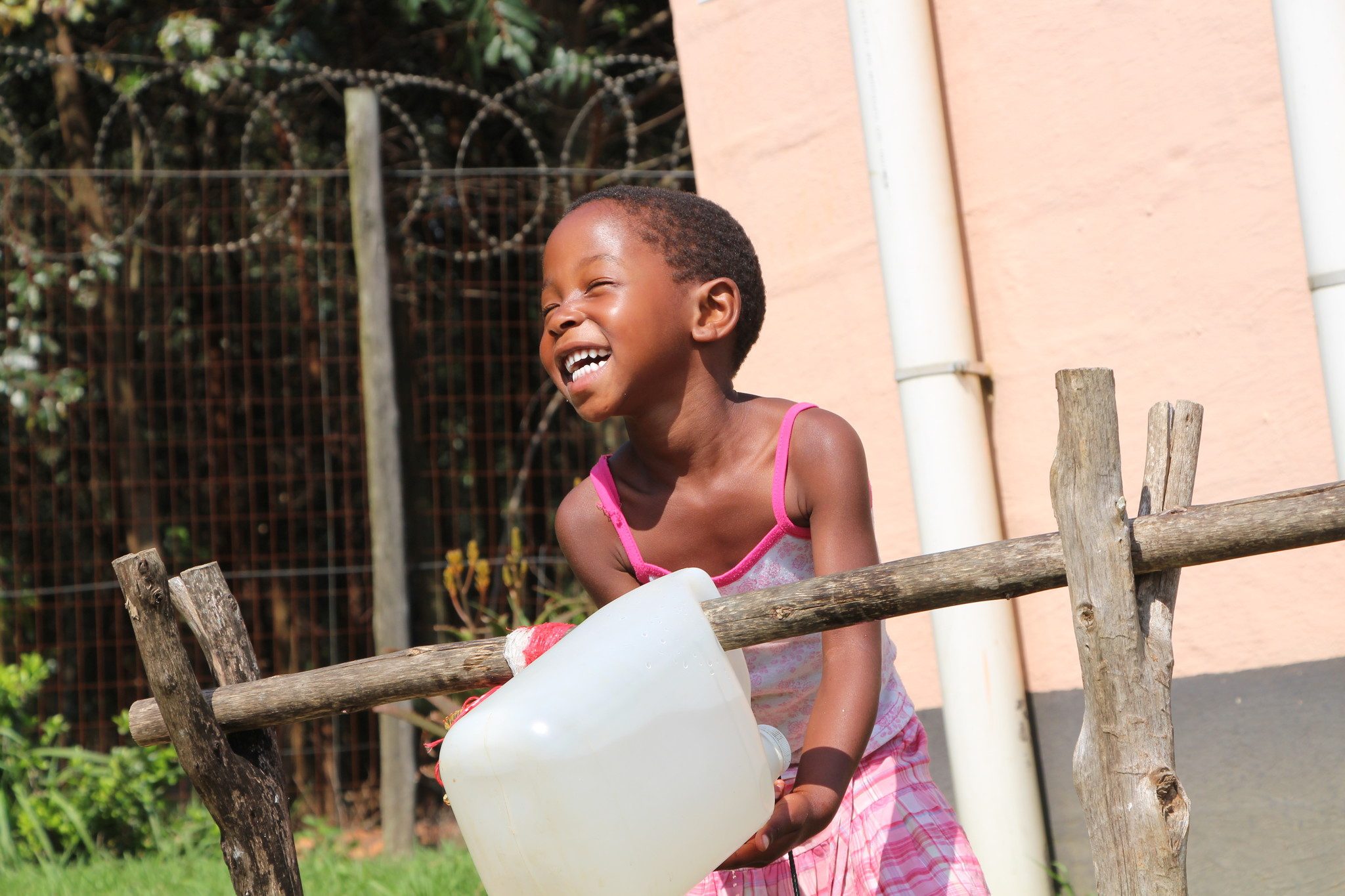
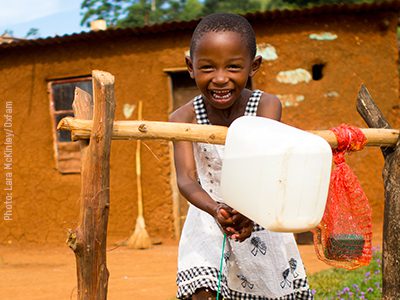
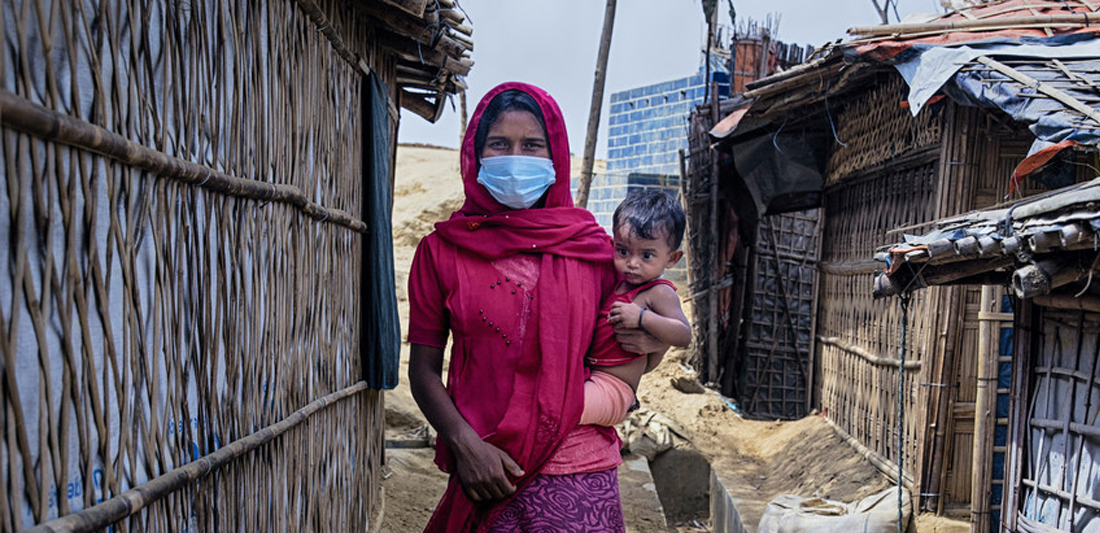
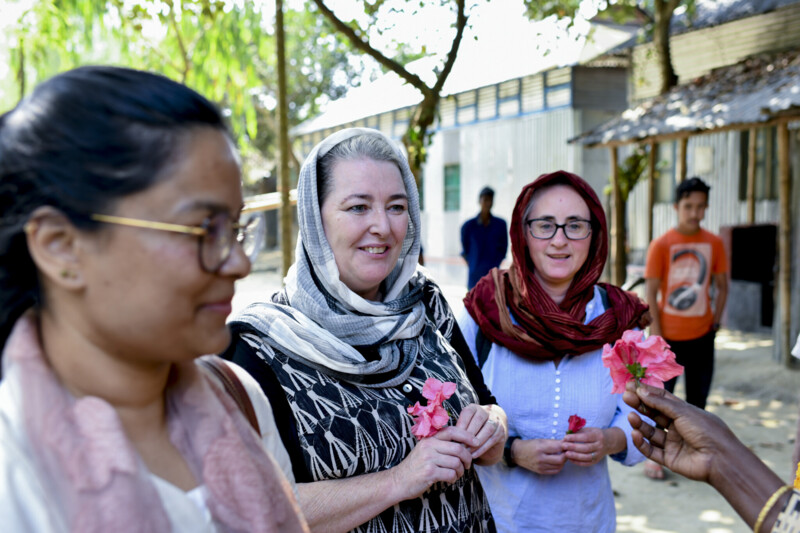
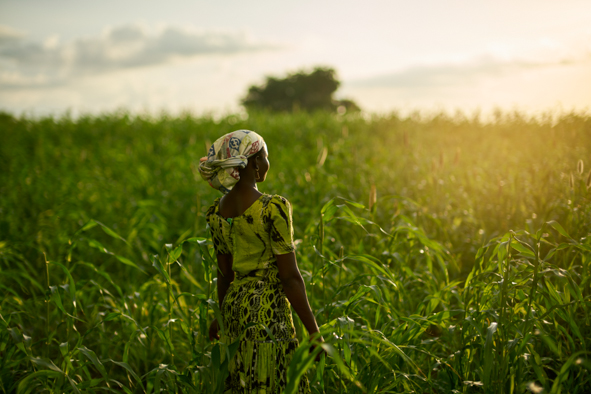 Doris*, daughter, 5; Pamila*, 2. Christina grows maize and she was shown how to make compost as part of the CRAFS (Climate Resilient Agriculture and Food Systems) programme.
Doris*, daughter, 5; Pamila*, 2. Christina grows maize and she was shown how to make compost as part of the CRAFS (Climate Resilient Agriculture and Food Systems) programme.